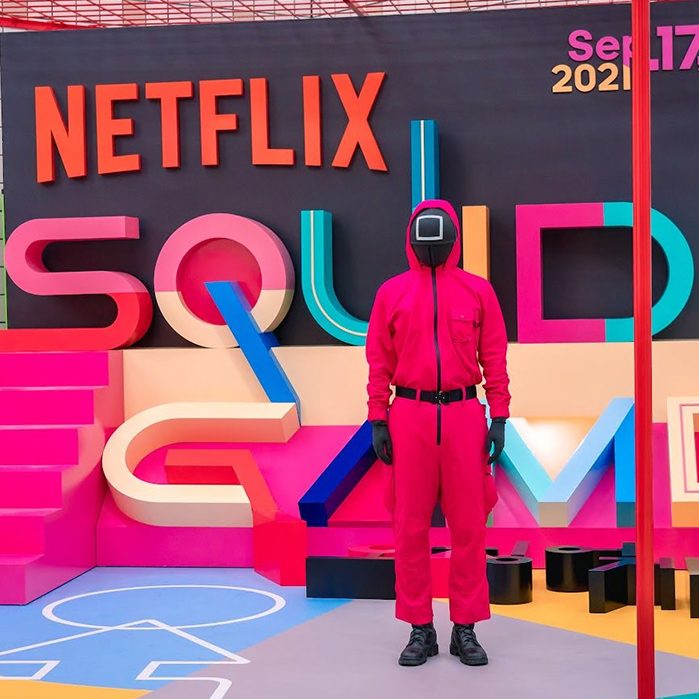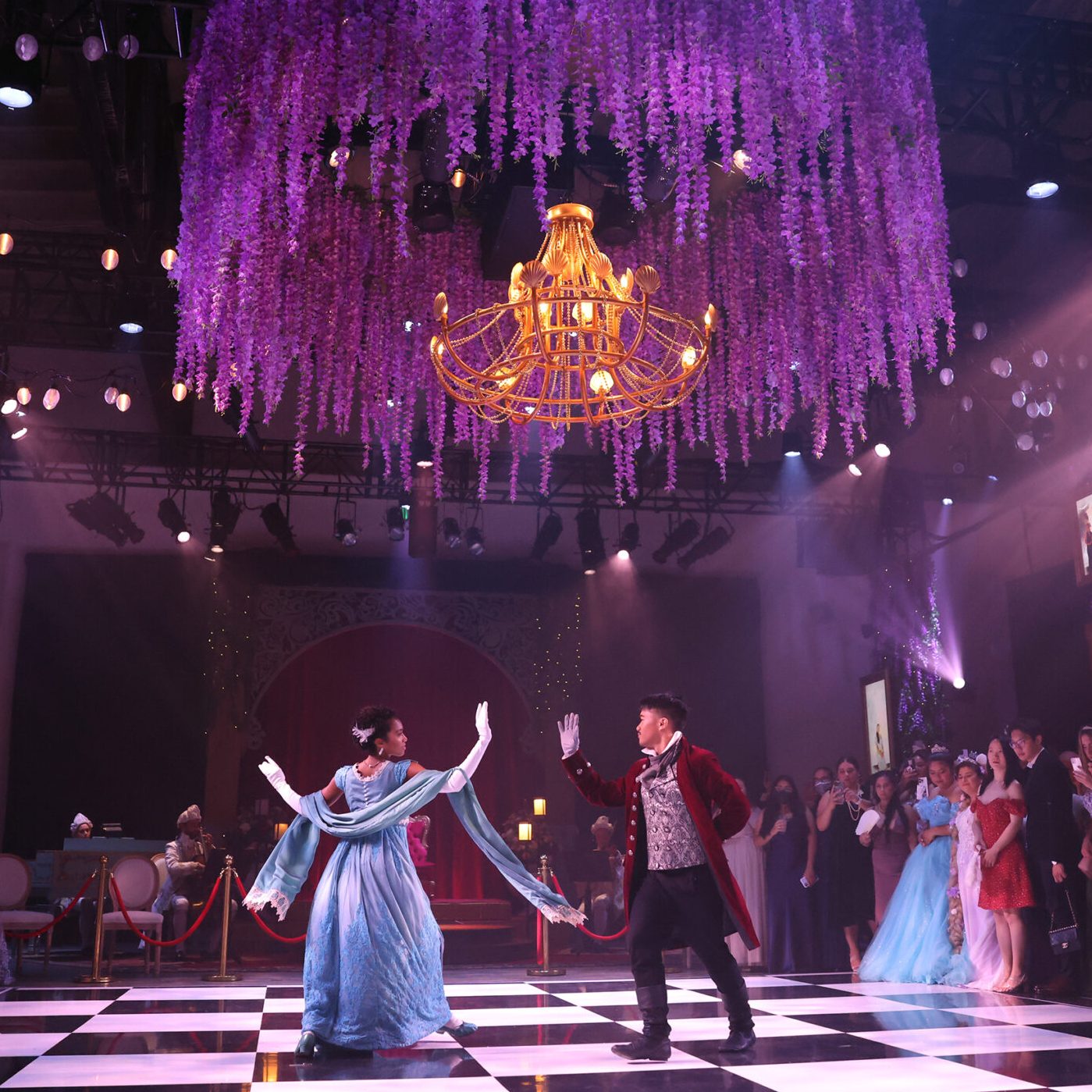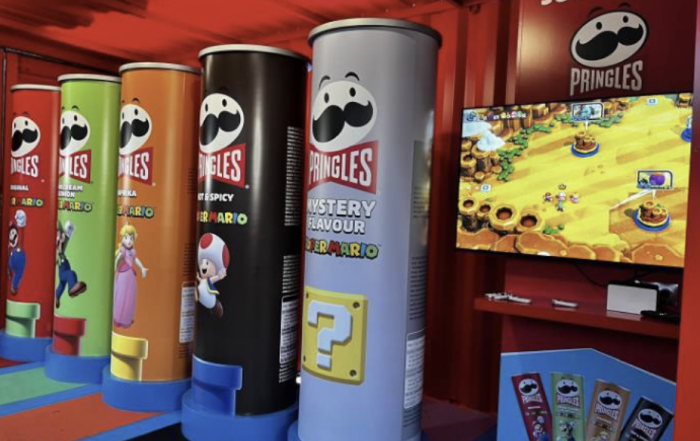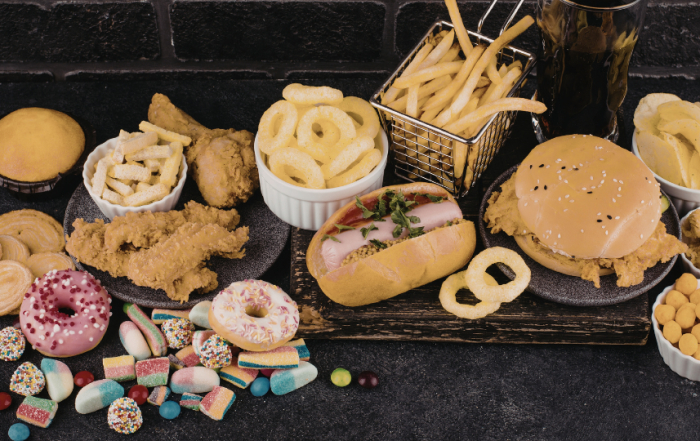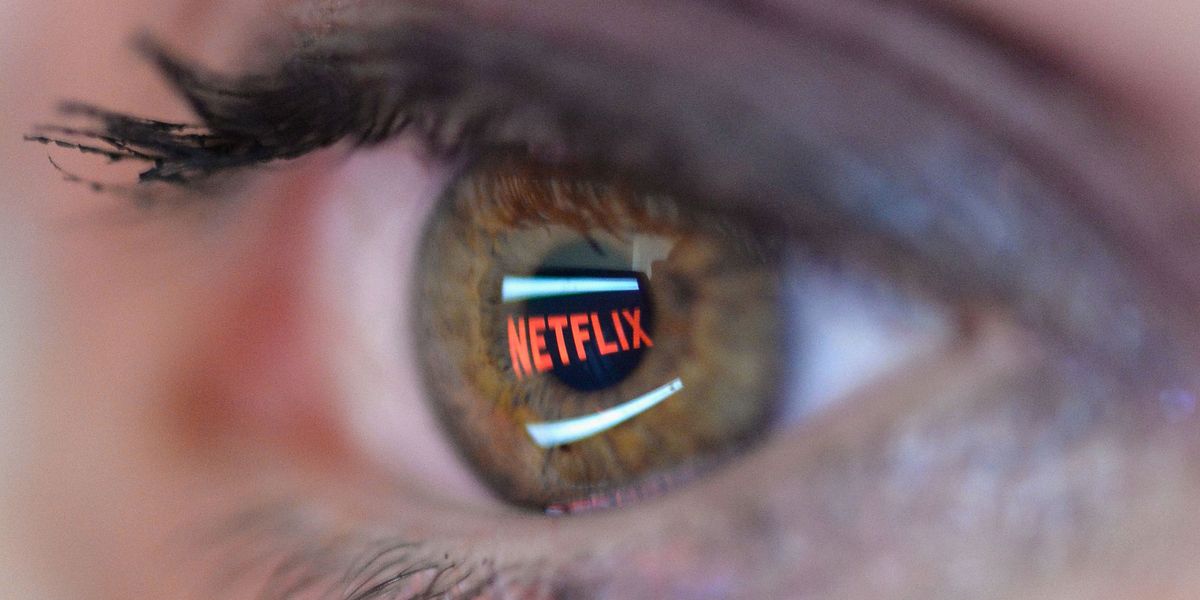
Inside Netflix House: From DVD Rentals to Experiential Retail
IPM discusses the anticipated launch of Netflix House in 2025, and how present-day immersive experiences like ‘Squid Game: The Trials’ and ‘The Queen’s Ball’ are reshaping the entertainment landscape. The journey of Netflix is shown through the lens of Consumer Culture Theory (CCT) with further insights from Professor Avi Shankar.

Inside Netflix House: From DVD Rentals to Experiential Retail
IPM discusses the anticipated launch of Netflix House in 2025, and how present-day immersive experiences like ‘Squid Game: The Trials’ and ‘The Queen’s Ball’ are reshaping the entertainment landscape. The journey of Netflix is shown through the lens of Consumer Culture Theory (CCT) with further insights from Professor Avi Shankar.
January 22, 2024
The story of Netflix is nothing short of a fairy-tale. Beginning as a modest DVD rental company to pioneering the online subscription service and surviving the ebbs and flows of technological revolution. Netflix has firmly established itself as a household name in over 16.7 million homes across the UK. But beyond the screen, the online streaming service is redefining experiential marketing with creative spin-off campaigns like ‘Squid Game: The Trials’, where fans can play series-inspired games, and ‘The Queen’s Ball’, inviting Bridgeton fans to masquerade as characters from the show. In the past five years, over fifty Netflix experiences took place across twenty cities worldwide. Not even Covid-19 stopped Netflix, “Stranger Things: The Drive-Into” brought viewers inside the series without having to leave their cars. Let’s take a closer look at Netflix’s experiential masterclass and what to expect from ‘Netflix House’ in 2025.
“We’ve seen how much fans love to immerse themselves in the world of our movies and TV shows, and we’ve been thinking a lot about how we take that to the next level”.
Josh Simon, Vice President of Consumer Products at Netflix.
What to Expect from Netflix House | 2025
The recent announcement of ‘Netflix House‘, set to launch in 2025, represents another mammoth investment in fan-oriented experiences. These immersive retail stores offer fans a doorway into the universe of their favourite shows. Spearheaded by Josh Simon, Netflix’s vice president of consumer products, the rooms will include immersive décor, curated playlists, themed food, and live experiences. Scheduled to debut in major U.S. cities like Los Angeles and New York, ‘Netflix House’ has ambitions for a global expansion.
Meanwhile, in the UK, Netflix continues to experiment with cinematic pop-up experiences, like the gothic-wonderland for ‘Wednesday’s House of Gloom‘ in Soho and the ‘Rebel Moon Orb‘ near London’s Tower Bridge. Once threatening to shut-down cinemas, Netflix has come full-circle to embrace the very medium it was thought to undermine. These mixed-reality pop-ups, blending fantasy with reality, are becoming increasingly popular amongst fans. Which raises a critical question: What are the underlying drivers pulling people into immersive fictional worlds?
Blurred Lines: Fiction Meets Real-World Experiences
“The Queen’s Ball immerses visitors in the world of Bridgerton balls, romance, fashion and music. Attendees are greeted by the voice of Lady Whistledown and actors in full Regency attire. They sip Bridgerton-themed cocktails, visit a portrait studio, learn dance steps from the period and compete to win the Queen’s favor as a string quartet plays music inspired by the series. It’s your chance to experience Bridgerton as if you were truly there. And one lucky attendee might just shine enough to be named Diamond of the Season”.
Josh Simon, Vice President of Consumer Products at Netflix.
Consumer Culture Theory (CCT), explored by experts like Professors, Avi Shankar and Robert V. Kozinets, offers valuable insights into the growing appeal of immersive experiences, particularly those crafted by entities like Netflix. CCT investigates how these experiences, deeply rooted in elements of fantasy, identity, and performance, provide individuals with a temporary escape from structured life and roles. Netflix’s ‘The Queen’s Ball: a Bridgerton Experience‘ is a great example. In this event, fans actively engage in a ball themed around the show, flaunting regency style costumes, and participating in a co-created narrative. By featuring elements like cosplay, exclusive merchandise and actors, Netflix is deepening the connection between fans and fictional universes. As we enter 2024, the growing trend of fan participation is set to deepen with the launch of ‘Netflix House’ and ‘Netflix Shop’. These ventures will offer everything from themed clothing to culinary treats, pointing to a future where the boundaries between media and real-world experiences blur, transforming how audiences connect with and participate in the stories they love.
“Playful consumption, is an intriguing concept that moves beyond the practical, utilitarian reasons for buying to embrace elements of fantasy, enjoyment, and play. This trend can be observed with brands like Harley Davidson but also in events like Comic-Con, where enthusiasts invest weeks, or even months, crafting costumes and immersing themselves in fictional worlds. With an increasing number of brands focusing on designing immersive experiences and environments, it prompts intriguing questions about the future of consumer culture and brand engagement”.
Avi Shankar, Professor of Consumer Research & REF Director in the School of Management at the University of Bath.
Monetising Fandoms: Rising Streaming Costs
Netflix’s foray into the retail sector is part of a strategic response to an increasingly competitive streaming market in 2022. Stiff competition from the likes of Disney Plus and Amazon Prime led to a noticeable decline in Netflix’s subscriber base, followed by a significant drop in its share value. In response, Netflix’s co-CEO, Ted Sarandos, implemented a crackdown on password sharing and pivoted towards merchandising, forming as many as 75 brand partnerships to promote the third season of Stranger Things. These partnerships with high-profile brands, such as Lacoste and Topshop, resulted in the launch of ‘Stranger Things’-themed clothing lines, vinyl records, lunchboxes, and other branded paraphernalia. The introduction of on-and-offline merchandising stores and the anticipation of ‘Netflix House’ are further steps towards integrating the streaming experience with tangible consumer products.
“We put a lot of care into choosing our consumer products. In the early stages, we ask ourselves whether a given product line or experience allows a viewer to explore the world more deeply, express their fandom, or extends the story in compelling ways. This helps bridge the gap between seasons and create a year-round point of connection for our members to express their love of our shows and connect with other fans.
Josh Simon, Vice President of Consumer Products at Netflix.
Beyond diversifying revenue streams, this strategy forms part of Netflix’s broader response to combat ‘stream-flation‘, a term used to describe the escalating costs of streaming services. By expanding its focus beyond traditional streaming, Netflix is reinforcing the presence and appeal of its brand to the market. According to the company’s latest communication to its shareholders, this has led to an increase in new subscribers – 8.8 million in the third quarter of 2023, adding to the 5.9 million gained in the previous quarter. This surge has brought Netflix’s total global subscriber count to approximately 247.2 million, suggesting a positive turnaround in the face of earlier setbacks.
Conclusion: Redefining Entertainment
In conclusion, Netflix’s journey from a simple DVD rental service to a global streaming giant and now a pioneer in experiential retail is a testament to its innovative spirit. Its journey into experiential marketing, showcased through mixed-reality events like ‘The Queen’s Ball‘ and ‘Wednesday’s House of Gloom‘, has redefined audience engagement, blurring the lines between fiction and reality. Consumer Culture Theory provides a lens to understand this shift, highlighting the role of fantasy, identity and performance in creating a temporary escape from structured life. Netflix’s retail expansion, such as ‘Netflix House’ and ‘Netflix Shop’, are not just about monetising fandom but also creating spaces where fans can deeply connect with their favourite stories. Despite facing challenges such as subscriber loss and a decrease in share value, Netflix’s strategic embrace of experiential marketing, merchandising and partnerships demonstrates a confident stride towards blending immersive experiences with tangible consumer products. As Netflix continues to break new ground, what can we expect next in its quest to redefine entertainment?
News
Pringles × Super Mario: The Boss Level Brand Partnership That Won the IPM Grand Prix
Brand Culture, last year’s IPM Grand Prix winners, reveal how Pringles × Super Mario turned a brand partnership into shelf-side excitement, from the Mystery Flavour “question block” idea to collectable character cans.
HFSS Advertising Regulations: What Marketers Need to Know
HFSS regulations have entered a new phase. This article breaks down what the latest rules mean for marketers, where the key risks sit, and how IPM tools and legal support can help.
Promotions Wrapped! Playing Back the Biggest Trends of 2025
From Superman on The Shard to ‘AI slop’, see what cut through in 2025...
January 22, 2024
The story of Netflix is nothing short of a fairy-tale. Beginning as a modest DVD rental company to pioneering the online subscription service and surviving the ebbs and flows of technological revolution. Netflix has firmly established itself as a household name in over 16.7 million homes across the UK. But beyond the screen, the online streaming service is redefining experiential marketing with creative spin-off campaigns like ‘Squid Game: The Trials’, where fans can play series-inspired games, and ‘The Queen’s Ball’, inviting Bridgeton fans to masquerade as characters from the show. In the past five years, over fifty Netflix experiences took place across twenty cities worldwide. Not even Covid-19 stopped Netflix, “Stranger Things: The Drive-Into” brought viewers inside the series without having to leave their cars. Let’s take a closer look at Netflix’s experiential masterclass and what to expect from ‘Netflix House’ in 2025.
“We’ve seen how much fans love to immerse themselves in the world of our movies and TV shows, and we’ve been thinking a lot about how we take that to the next level”.
Josh Simon, Vice President of Consumer Products at Netflix.
What to Expect from Netflix House | 2025
The recent announcement of ‘Netflix House‘, set to launch in 2025, represents another mammoth investment in fan-oriented experiences. These immersive retail stores offer fans a doorway into the universe of their favourite shows. Spearheaded by Josh Simon, Netflix’s vice president of consumer products, the rooms will include immersive décor, curated playlists, themed food, and live experiences. Scheduled to debut in major U.S. cities like Los Angeles and New York, ‘Netflix House’ has ambitions for a global expansion.
Meanwhile, in the UK, Netflix continues to experiment with cinematic pop-up experiences, like the gothic-wonderland for ‘Wednesday’s House of Gloom‘ in Soho and the ‘Rebel Moon Orb‘ near London’s Tower Bridge. Once threatening to shut-down cinemas, Netflix has come full-circle to embrace the very medium it was thought to undermine. These mixed-reality pop-ups, blending fantasy with reality, are becoming increasingly popular amongst fans. Which raises a critical question: What are the underlying drivers pulling people into immersive fictional worlds?
Blurred Lines: Fiction Meets Real-World Experiences
“The Queen’s Ball immerses visitors in the world of Bridgerton balls, romance, fashion and music. Attendees are greeted by the voice of Lady Whistledown and actors in full Regency attire. They sip Bridgerton-themed cocktails, visit a portrait studio, learn dance steps from the period and compete to win the Queen’s favor as a string quartet plays music inspired by the series. It’s your chance to experience Bridgerton as if you were truly there. And one lucky attendee might just shine enough to be named Diamond of the Season”.
Josh Simon, Vice President of Consumer Products at Netflix.
Consumer Culture Theory (CCT), explored by experts like Professors, Avi Shankar and Robert V. Kozinets, offers valuable insights into the growing appeal of immersive experiences, particularly those crafted by entities like Netflix. CCT investigates how these experiences, deeply rooted in elements of fantasy, identity, and performance, provide individuals with a temporary escape from structured life and roles. Netflix’s ‘The Queen’s Ball: a Bridgerton Experience‘ is a great example. In this event, fans actively engage in a ball themed around the show, flaunting regency style costumes, and participating in a co-created narrative. By featuring elements like cosplay, exclusive merchandise and actors, Netflix is deepening the connection between fans and fictional universes. As we enter 2024, the growing trend of fan participation is set to deepen with the launch of ‘Netflix House’ and ‘Netflix Shop’. These ventures will offer everything from themed clothing to culinary treats, pointing to a future where the boundaries between media and real-world experiences blur, transforming how audiences connect with and participate in the stories they love.
“Playful consumption, is an intriguing concept that moves beyond the practical, utilitarian reasons for buying to embrace elements of fantasy, enjoyment, and play. This trend can be observed with brands like Harley Davidson but also in events like Comic-Con, where enthusiasts invest weeks, or even months, crafting costumes and immersing themselves in fictional worlds. With an increasing number of brands focusing on designing immersive experiences and environments, it prompts intriguing questions about the future of consumer culture and brand engagement”.
Avi Shankar, Professor of Consumer Research & REF Director in the School of Management at the University of Bath.
Monetising Fandoms: Rising Streaming Costs
Netflix’s foray into the retail sector is part of a strategic response to an increasingly competitive streaming market in 2022. Stiff competition from the likes of Disney Plus and Amazon Prime led to a noticeable decline in Netflix’s subscriber base, followed by a significant drop in its share value. In response, Netflix’s co-CEO, Ted Sarandos, implemented a crackdown on password sharing and pivoted towards merchandising, forming as many as 75 brand partnerships to promote the third season of Stranger Things. These partnerships with high-profile brands, such as Lacoste and Topshop, resulted in the launch of ‘Stranger Things’-themed clothing lines, vinyl records, lunchboxes, and other branded paraphernalia. The introduction of on-and-offline merchandising stores and the anticipation of ‘Netflix House’ are further steps towards integrating the streaming experience with tangible consumer products.
“We put a lot of care into choosing our consumer products. In the early stages, we ask ourselves whether a given product line or experience allows a viewer to explore the world more deeply, express their fandom, or extends the story in compelling ways. This helps bridge the gap between seasons and create a year-round point of connection for our members to express their love of our shows and connect with other fans.
Josh Simon, Vice President of Consumer Products at Netflix.
Beyond diversifying revenue streams, this strategy forms part of Netflix’s broader response to combat ‘stream-flation‘, a term used to describe the escalating costs of streaming services. By expanding its focus beyond traditional streaming, Netflix is reinforcing the presence and appeal of its brand to the market. According to the company’s latest communication to its shareholders, this has led to an increase in new subscribers – 8.8 million in the third quarter of 2023, adding to the 5.9 million gained in the previous quarter. This surge has brought Netflix’s total global subscriber count to approximately 247.2 million, suggesting a positive turnaround in the face of earlier setbacks.
Conclusion: Redefining Entertainment
In conclusion, Netflix’s journey from a simple DVD rental service to a global streaming giant and now a pioneer in experiential retail is a testament to its innovative spirit. Its journey into experiential marketing, showcased through mixed-reality events like ‘The Queen’s Ball‘ and ‘Wednesday’s House of Gloom‘, has redefined audience engagement, blurring the lines between fiction and reality. Consumer Culture Theory provides a lens to understand this shift, highlighting the role of fantasy, identity and performance in creating a temporary escape from structured life. Netflix’s retail expansion, such as ‘Netflix House’ and ‘Netflix Shop’, are not just about monetising fandom but also creating spaces where fans can deeply connect with their favourite stories. Despite facing challenges such as subscriber loss and a decrease in share value, Netflix’s strategic embrace of experiential marketing, merchandising and partnerships demonstrates a confident stride towards blending immersive experiences with tangible consumer products. As Netflix continues to break new ground, what can we expect next in its quest to redefine entertainment?
News
Pringles × Super Mario: The Boss Level Brand Partnership That Won the IPM Grand Prix
Brand Culture, last year’s IPM Grand Prix winners, reveal how Pringles × Super Mario turned a brand partnership into shelf-side excitement, from the Mystery Flavour “question block” idea to collectable character cans.
HFSS Advertising Regulations: What Marketers Need to Know
HFSS regulations have entered a new phase. This article breaks down what the latest rules mean for marketers, where the key risks sit, and how IPM tools and legal support can help.
Promotions Wrapped! Playing Back the Biggest Trends of 2025
From Superman on The Shard to ‘AI slop’, see what cut through in 2025...




